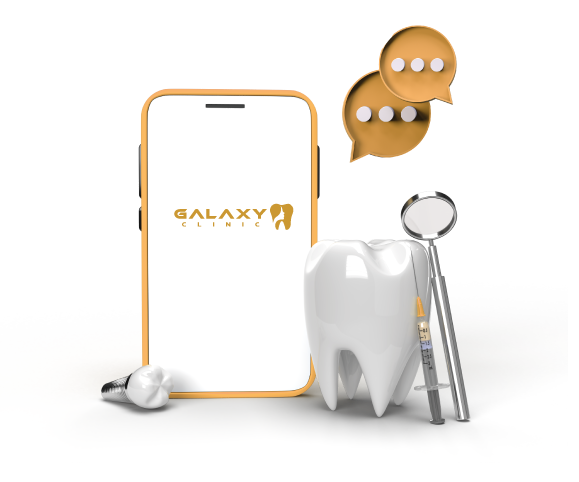There are many different symptoms of tooth sensitivity, so If you avoid hot or cold drinks because they cause discomfort, it might be time to discuss with your dentist the possibility of having sensitive teeth.
Other things can sometimes aggravate sensitive teeth as well, such as sweet and sour foods or even cold air.
To effectively treat these tooth twinges, it’s important to understand their underlying cause. Once you identify the cause, you can find an appropriate solution.
Before discussing the symptoms of tooth sensitivity, we will start with the prevention steps.
Protect Your Tooth Enamel
This hard, protective layer helps your teeth withstand everything you put them through. When it wears away, it exposes nerve endings that can cause pain.
If you have sensitive teeth, it’s possible that some of your enamel has worn down.
To prevent or slow down that damage:
Avoid brushing too hard. If you use excessive pressure while brushing, you might be removing more than just plaque. Brushing side-to-side near the gum line can wear down your enamel more quickly. Instead, use a soft-bristled brush and brush at a 45-degree angle to your gums to help maintain strong, healthy enamel.
Reduce your consumption of acidic foods and beverages. Soda, sticky candy, and high-sugar carbs all contribute to enamel erosion. Instead, opt for snacks such as:
- Fiber-rich fruits and vegetables
- Cheese
- Milk
- Plain yogurt
- These options will help moisten your mouth and combat acids and bacteria that can damage your teeth. Saliva is one way your mouth naturally addresses these issues.
- You can also drink green or black tea or chew sugarless gum. If you consume something acidic, wait about an hour before brushing to allow your enamel time to strengthen before you clean your teeth.
Relax your jaw. Prolonged teeth grinding can erode your enamel. Managing your stress might help alleviate the issue, but if it persists, your dentist can provide a splint or mouth guard to protect your teeth.
If the issue is severe, you might require dental treatment to adjust the position of your teeth or a muscle relaxant.
Pause your bleaching routine. Pursuing a whiter smile might be causing your discomfort. Fortunately, sensitivity from bleaching is typically temporary. Consult your dentist to discuss how the treatment may be affecting you and whether you should proceed.
What is the prognosis for tooth sensitivity?
If tooth sensitivity is making eating challenging, consult your dentist for a solution. Many over-the-counter toothpastes and mouthwashes are specifically formulated for sensitive teeth.
If these remedies aren’t effective, consult your dentist about prescription toothpaste and mouthwash. Additionally, schedule an appointment with your dentist if you experience symptoms of cavities or potential root damage to ensure timely treatment and prevent complications. These symptoms may include:
- Sudden tooth pain without an apparent cause
- Sensitivity isolated to a single tooth
- Sharp, intense pain rather than mild discomfort
- Stains on the surface of your teeth
- Pain when biting down or chewing

When you have tooth sensitivity, certain activities can cause a brief, sharp pain. These activities often include brushing your teeth, eating, and drinking. Tooth sensitivity can result from worn-down enamel or exposed tooth roots. However, other factors can also contribute to sensitivity, such as cavities, cracked or chipped teeth, worn fillings, gum disease, or the use of teeth whiteners.
If you’re experiencing discomfort from tooth sensitivity, visit your dentist. They can identify or rule out potential causes of your tooth pain.
For more about dental health, please click Here.
Based on your specific condition, your dentist may suggest:
Desensitizing toothpaste and mouthwash can help alleviate the pain of sensitive teeth. These products are usually available over the counter.
Fluoride treatment. Your dentist may apply fluoride to the sensitive areas of your teeth to strengthen enamel and reduce pain. They may also advise using prescription fluoride at home, as well as dental adhesives or sealants. Exposed root surfaces can sometimes be treated with an adhesive or sealant, creating a protective layer over the root.
Gum graft. If a tooth root has lost gum tissue and is exposed, a small amount of tissue can be taken from another part of the mouth and attached to the affected area, known as a graft. Alternatively, tissue for the graft can come from a deceased donor or another source. A gum graft protects the exposed root and can reduce tooth sensitivity.
To maintain healthy teeth after treatment, follow these steps:
- Brush your teeth twice a day with a soft-bristled toothbrush.
- Use gentle strokes rather than scrubbing or brushing vigorously.
- Choose a fluoride toothpaste and avoid abrasive ones.
- Floss at least once a day.
- See your dentist regularly.
If you grind your teeth, consider discussing the use of a mouth guard with your dentist. Teeth grinding can cause damage, leading to increased tooth sensitivity and other dental issues.
Acidic foods and beverages can gradually erode tooth enamel over time. Examples of such items include carbonated drinks, citrus fruits, and wine. To minimize the impact of acidic liquids on your teeth, try using a straw to reduce direct contact. Additionally, after consuming acidic foods or drinks, rinse your mouth with water to help neutralize the acid and protect your enamel.
Conclusion
For those experiencing persistent sensitivity, it’s essential to consult with a dentist who can offer tailored solutions, such as fluoride treatments or dental sealants, to protect and strengthen tooth enamel. Additionally, lifestyle adjustments, such as reducing the consumption of acidic foods and beverages and avoiding excessive brushing force, can play a crucial role in managing and preventing sensitivity. By understanding the root causes and implementing appropriate interventions, individuals can effectively mitigate discomfort and enhance their quality of life, ensuring their smile remains both healthy and vibrant.
Furthermore, lifestyle changes, like reducing acidic food intake and wearing a mouthguard to prevent enamel wear, can help mitigate symptoms. Ultimately, proactive care and tailored interventions can lead to significant improvements in sensitivity, contributing to overall dental health and enhanced quality of life.
References:
Sensitive teeth: What treatments are available? – Mayo Clinic
https://www.healthline.com/health/sensitive-teeth#Whats-the-outlook-for-tooth-sensitivity


